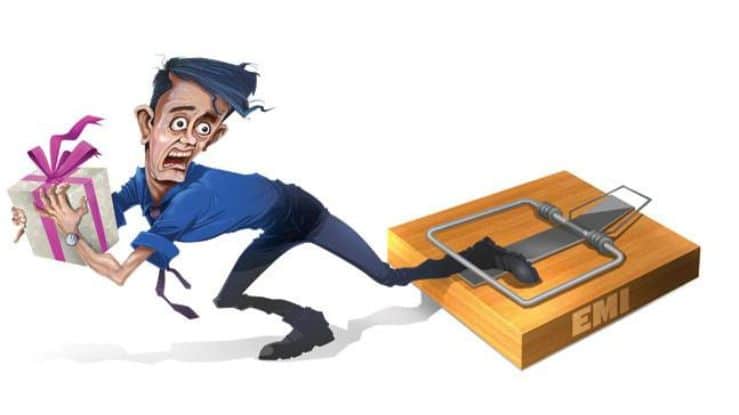Many times, if the loan EMI is missed continuously, the bank declares the borrower as default. This step taken by the bank not only harasses the borrower mentally but can also harm his financial sustainability. If you are also missing EMI or you are not in a better position to repay the loan, then in such a situation you should talk to the bank or institution giving you the loan. During this, you should ask for temporary relief from the bank.
Missing loan EMI is not a crime

Not paying loan EMI on time is a kind of violation of rules, but there is no criminal case in the country. Banks and financial institutions are instructed by the Reserve Bank of India to behave responsibly with the borrower by following some standards.
Issuing notice is mandatory before legal action
Let us tell you that any bank or financial institution will issue a default notice before taking any legal action against you. This notice is issued 2 months before starting legal action. However, in some cases it can happen earlier as well.
Also Read: Home Loan Interest Rate: Planning to Buy a House? Check Bank Interest Rates
In the notice issued by the bank, the outstanding loan amount, details of missing EMI, consequences of not repaying the loan are highlighted in detail. The bank is bound to issue this notice to you in the language you understand.
Also Read: Home Loan EMI Calculator: A Tool for Monthly Payment Plan
For example, you are a resident of Maharashtra state and understand Marathi language. In such a situation, the bank or any financial institution is bound to issue you a notice in Marathi language only. Similarly for different states distinct language is mandate.
Fair treatment of the borrower
According to RBI guidelines, the borrower is bound to be treated fairly. Not only this, the person taking the loan can also challenge the legal notice. However, you have to challenge within one month of the notice being issued.
Apart from this, you have to behave in an ideal manner during the loan recovery process. The bank cannot use any kind of disrespectful words with you. After legal action on the borrower, the court often focuses on loan recovery instead of punishment or fine.


